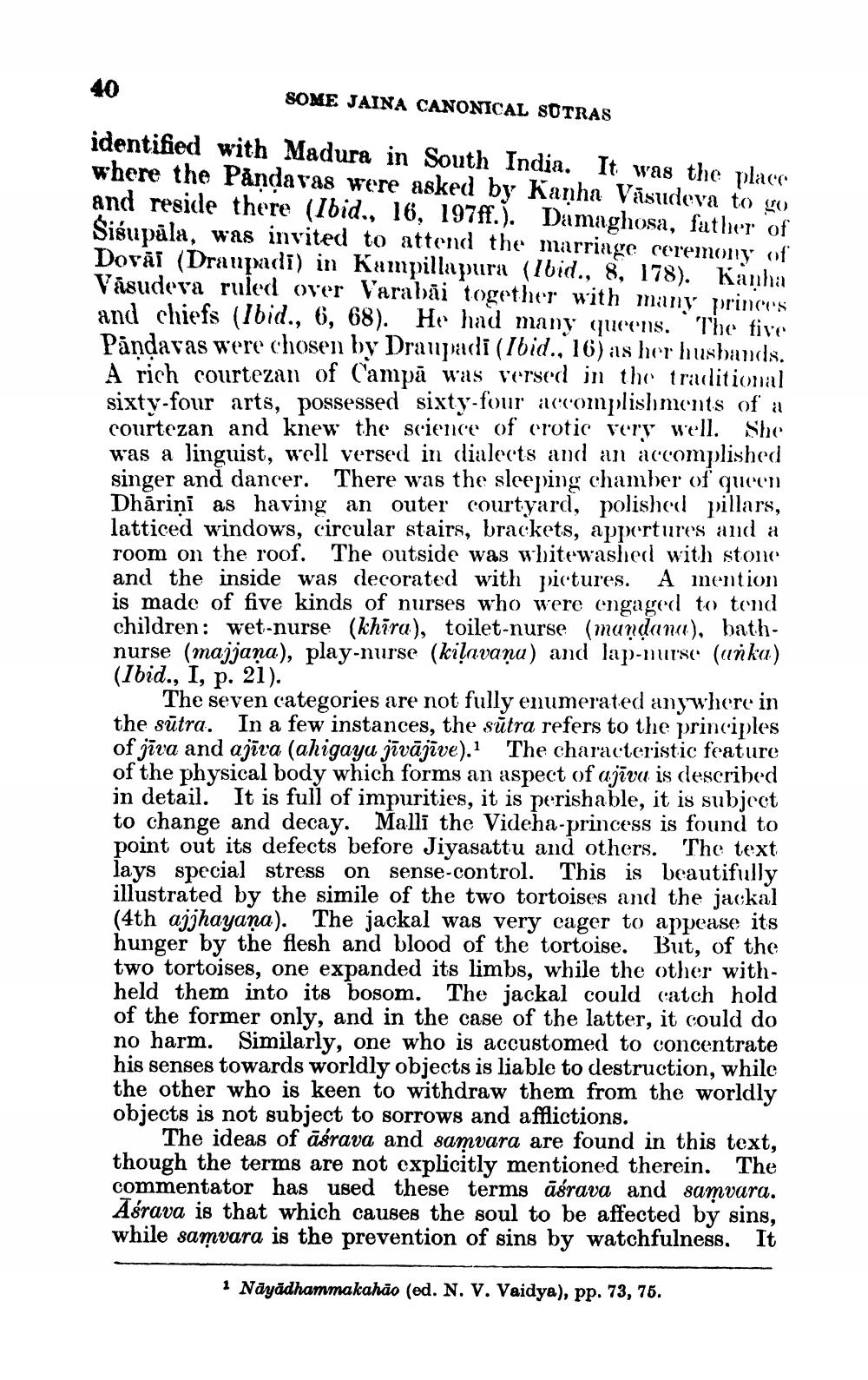________________
40
SOME JAINA CANONICAL SOTRAS identified with Madura in South India. It was the place where the Påndaras were asked by Kanha Väsudeva to go and reside there (Ibid., 16, 197ff.). Damaghosa, father of Siśupāla, was invited to attend the marriage ceremony of DovĀi (Draupadi) in Kampillapura (Ibid., 8, 178). Kanha Vasudeva ruled over Varabāi together with many princes and chiefs (Ibid., 6, 68). He had many queens. The five Påndavas were chosen by Draupadi (Ibid., 16) as her husbands. A rich courtezan of Campā was versed in the traditional sixty-four arts, possessed sixty-four accomplishments of a courtezan and knew the science of erotic very well. She was a linguist, well versed in dialects and an accomplished singer and dancer. There was the sleeping chamber of queen Dhāriņi as having an outer courtyard, polished pillars, latticed windows, circular stairs, brackets, appertures and a room on the roof. The outside was whitewashed with stone and the inside was decorated with pictures. A mention is made of five kinds of nurses who were engaged to tend children: wet-nurse (khira), toilet-nurse (mundanı), bathnurse (majjana), play-nurse (kiļavaņu) and lap-nurse (unka) (Ibid., I, p. 21).
The seven categories are not fully enumerated anywhere in the sutra. In a few instances, the sūtra refers to the principles of jīva and ajīra (ahigaya jīvājīve). The characteristic feature of the physical body which forms an aspect of ajīva is described in detail. It is full of impurities, it is perishable, it is subject to change and decay. Malli the Videha-princess is found to point out its defects before Jiyasattu and others. The text lays special stress on sense-control. This is beautifully illustrated by the simile of the two tortoises and the jackal (4th ajjhayana). The jackal was very eager to appease its hunger by the flesh and blood of the tortoise. But, of the two tortoises, one expanded its limbs, while the other withheld them into its bosom. The jackal could catch hold of the former only, and in the case of the latter, it could do no harm. Similarly, one who is accustomed to concentrate his senses towards worldly objects is liable to destruction, while the other who is keen to withdraw them from the worldly objects is not subject to sorrows and afflictions.
The ideas of āśrava and samvara are found in this text, though the terms are not explicitly mentioned therein. The commentator has used these terms āórava and samvara. Aśrava is that which causes the soul to be affected by sins, while samvara is the prevention of sins by watchfulness. It
1 Nāyādhammakahão (ed. N. V. Vaidya), pp. 73, 75.




